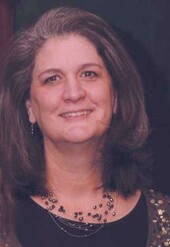Supporting New Zealand
via The Christian Science Sentinel
Sentinel Watch
Addressing tragedies and 'sudden endings'
By Kim C. Korinek - Arbor Vitae, Wisconsin, and St. Paul, Minnesota
From the December 31, 2012 issue of the Christian Science Sentinel

Photo credit: Gabe Korinek
We’ve all felt the shock that comes from an abrupt ending. It can be personal—like a divorce, a layoff, or the death of a loved one. Sometimes it can be larger—like a natural disaster or when lives are senselessly cut short in a tragedy, such as a shooting. Each person deals with these kinds of events differently, and there’s no formula to working through them. Here are a few things I have found helpful in responding prayerfully to “sudden endings” of any kind.
Healing the shock
When an abrupt change happens—especially if there is a loss of life involved—there is often an individual or community feeling of betrayal, anger, and distrust. But even in the midst of a storm of emotion, you can take steps toward healing. A good place to start in prayer is by quietly holding to the fact that good is not helpless. Even when our world seems to have been turned upside down, we can use our active faculty of reason, which comes from God. We can stand on the fact that we express the full range of spiritual qualities that come from God. We can be calm and confident of good, knowing that we are able to overcome what may seem to be an abrupt or unjust end.
Determining where you stand
In the aftermath of an ending, there may be confusion and disorientation. Sometimes there is a search to blame or shame another person. Other times, despair would tempt us to give in to hopelessness. Anything unethical, unjust, violent, or ignorant can be considered evil—but evil is never a person, a place, or a thing. We don’t have to give power to hatred or confusion or blame by agreeing to them or fostering them in our thinking. And evil suggestions can be countered by understanding that we are not vulnerable to fluctuating conditions, but are spiritual—thinking, loving, generous expressions of God. We stand on the foundation of the power of divine Love over evil.
Determining where others stand
Others stand on this same foundation of Love, too. We are made to love. That is our nature. Those who have been impacted by an abrupt event are embraced by God’s love, Love itself. Love is pure, permanent, and active by nature, and ceaselessly operates in everyone’s life. And as hard as it may be to accept, those who have engaged in destructive acts need the purging power of forgiveness in order to find their freedom. That doesn’t mean that we ignore evil, or that we don’t support justice for perpetrators. But it means that we affirm through prayer their fundamental spirituality, recognizing that God’s love is always present to comfort, correct, nurture, and calm. We stand on humanity’s higher nature—reason, order, generosity, lovingkindness, and thoughtfulness—which is a reflection of God’s love.
Trust and healing
Love governs our lives—in fact, in the Bible, Love is synonymous with God (see I John 4:8). Feelings of heartbreak, sadness, anger, depression, and anxiety about what has happened or about the future—not one of these things is permanent. They are all the apparent absence of spiritual somethingness, of God’s pure goodness that contains “no variableness, neither shadow of turning” (James 1:17). Love transforms, renews, and invigorates our lives. Love is our true north, and it is all that we are. We can never be separate from Love because it is what we are made of. Love is what guides us to fulfill our purpose, and to do good to others. Love is where we find healing.
A sudden ending doesn’t leave us the same. Through prayer, our sense of justice is strengthened, our commitment to help others is deepened, and our alertness to others’ needs is heightened. The world needs the poise, breadth, confidence, and vision of our prayers. It needs our seasoned experience in overcoming apparent evil by realizing God’s presence. It needs our grace to move forward with compassion and our insistence that greater good can come from any disturbance—no matter how large or small.
Kim Korinek is a Christian Science practitioner.